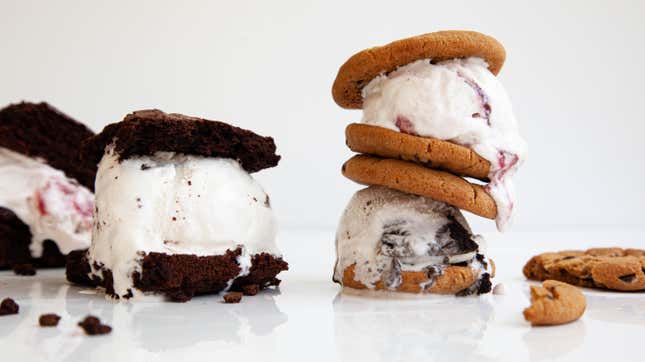
Climate change is more than just a hot topic of conversation; it’s an increasingly urgent rallying cry. There’s a palpable awareness among the general population that it’s becoming more costly (in every sense of the word) to raise livestock and transport it thousands of miles to where consumers will pay for it. From Impossible burgers to monk fruit, there’s been no shortage of “disruptions” to the food ecosystem, each one approaching the issue from a different angle.
Nestlé is no stranger to this. In 2021, it debuted Wunda, a pea-based milk alternative with multiple uses in several European countries, including the UK, France, the Netherlands and Portugal. (In the United States, consumers might be familiar with a similar pea product called Ripple.)
“We wanted to really stand out and break some norms,” said Rani Saab, Business Manager for Dairy Beyond the Core at Nestlé, part of its European branch. “We were aiming to disrupt the disruptors... Even the cues of the colors are quite unique for us.”
The press release goes on to state that the company wanted to create a product that checked the boxes of “nutrition, taste, sustainability and versatility,” all of which is contained in real cow’s milk. Now, Nestlé’s dairy innovation division is trying something new.
How Nestlé is making dairy-free milk
Nestlé recently announced its foray into an “emerging technology”—animal free dairy proteins made by Perfect Day, a food tech startup founded in 2014 by two bioengineers from Berkeley, California.
Perfect Day is working to prove that it’s possible to make “real” dairy with no cows via a process called precision fermentation. Using tiny microorganisms called microflora, the company has developed a process in which a “precise DNA sequence” is engineered to make whey protein identical to what’s found in cow’s milk. In other words, the yeast is modified to make it suitable for everyone to enjoy.
Of course, this is not Nestlé’s first rodeo. Ever since its acquisition of Sweet Earth in 2017, it has debuted more than 45 plant-based products, including meatless pizzas and lasagnas, faux beef, chicken, sausage, and more.
Precision fermentation, or fermentation in general, has been lauded as an inexpensive and safe option with a low carbon footprint, ideal for large companies to explore. But even with the benefits, Nestlé appears to be treading slowly, testing only in select markets to see how consumers respond to the “milk.” Using Nestlé’s newly established R+D Accelerator, the product could be on its way to market in about six months.
“We are exploring emerging technologies that can lead to animal-friendly alternatives that are nutritious and sustainable, without compromising on taste, flavor, and texture,” said Heike Steiling, Head of Nestlé’s Development Center for dairy products, in a statement. So if you’re someone who thinks that all the plant-based milks currently on the market taste too thin, too vegetal, or too sweet, there might soon be an “actual” milk out there that checks all the boxes without involving animals at all.